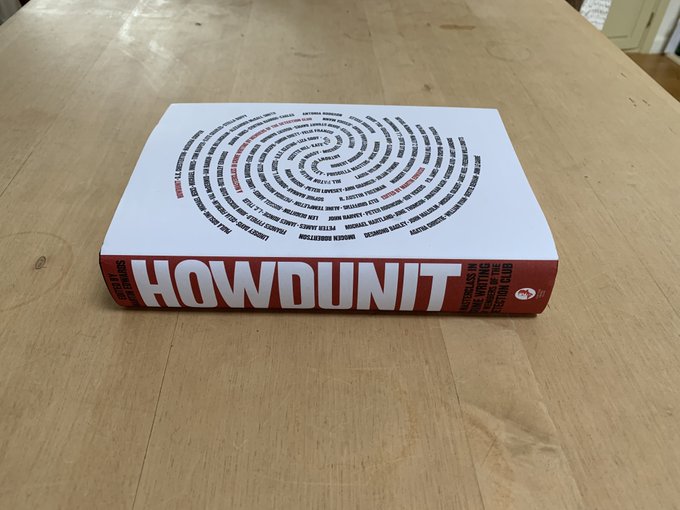There's been a glut of TV programmes about British serial killers in recent weeks. After Des, the Dennis Nilsen case, we've had a re-run of Appropriate Adult about Fred and Rose West, and this week there is a three-part investigation into the Harold Shipman case. This extraordinary story was the subject of an essay I published last year in a true crime anthology edited by Mitzi Szereto, and which I called 'The First of Criminals'.
The three cases are very, very different from each other, but they do have certain features in common. In particular, they reverse the usual situation with serial killers. Typically, a series of killings results in a hunt for the culprit. In each of these cases, the culprit was pinpointed, in connection with a particular crime, before the scale of their homicidal careers became apparent. In each case - and this is an absolute, enduring tragedy - the precise number and identities of the victims has never been established beyond doubt.
Chris Wilson's The Harold Shipman Files focuses, very properly, on the victims. Because Hyde is a town I know, although not well, I've been very interested in the case from day one. And I do feel quite strongly about it. Shipman's suicide robbed us of any chance of finding out his motivation, but the official report from Dame Janet Smith (which was very well done, in my opinion) explains the case with insight and empathy, and makes an attempt to fathom his mindset. The idea that he enjoyed playing God and that he became addicted to murder seems plausible to me.
He clearly had an addictive personality. I find it shocking that the General Medical Council allowed him to practise as a doctor following an early conviction for the misuse of drugs without any proper monitoring. It seems to me to reflect a long-standing tendency on the part of professional bodies (including those governing solicitors and barristers) to be too lax in dealing with people who commit misdemeanours of a kind that really indicate they aren't to be trusted. In saying this, I fully recognise the importance of giving people an opportunity of redeeming themselves - this is true of criminals and it's true of others who make bad mistakes. But if Shipman's history had been better known, if the powers-that-be had exercised more diligence after he was allowed to continue in his work, how many lives would have been saved - over two hundred? For instance, there is understandable and proper criticism of the original police inquiry, when suspicions were raised about Shipman by a fellow GP in Hyde, and which seems to have been slipshod. But if the information about Shipman's past had been more readily available, the outcome of that investigation might well have been very different.
Wilson makes the point that the age of Shipman's victims was a key factor. He killed older people, and got away with it because others accepted that older people have 'had a good innings', even if their death was sudden and wholly unexpected. The truth is that he traded on society's inherent ageism.





